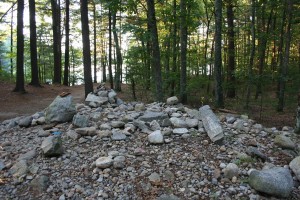
Media Hooks
Though Walden’s Shore is an academic-trade book, many of the ideas are of general interest. For this reason, it made the “Literary News” section of the Boston Sunday Globe, and was featured in bundled review titled “Diving into Walden,” also published in the Globe.
Thoreau
- Thoreau had fears of climate change. They were opposite our own. He had the common early Victorian fear that the world would freeze over, rather than heat up.
- The neuroscience issue involving brain-plasticity. I refer toThoreau’s decision to become a surveyor, his developing obsession of measuring everything, and his widening rift with Emerson.
- The Thoreau-Darwin connection, a new role model to replace Emersonian idealism.
- The chaotic historical backdrop of ideas regarding the the origin of the local landscape (debacle, drift, diluvium, and glaciation), and how Thoreau successfully navigated them.
- The autism spectrum. Several years ago I published a short piece in the Thoreau Society Bulletin asking whether HDT would meet the diagnosis of Aspbergers Syndrome (knowing that one cannot diagnose a dead person). A prominent Thoreauvian psychologist weighed in with a professional response in the lead (front page) article saying yes and now, but it raised an interesting question Some of the text of Walden’s Shore would support this. Pitch: interest in the spectrum.
Walden Pond
- Walden pond is the coalescement of four kettle ponds, not just one.
- The view from Walden, then and now. The look of Walden pond is very different from the one Thoreau experienced.
- Walden Pond as an organic machine in steady state. How will it change in a future climate?
- Walden Pond as the most famous kettle lake in America. Links to other historically important small lakes of similar origin.
Link to Author Information:
Heap of stones just east of Thoreau’s house site, nearly all of which were dropped one at a time by separate visiting pilgrims. The downward through the woods overlooks Walden Pond, and is substnatially different from the one Henry would have seen nearly a centry and a half ago.